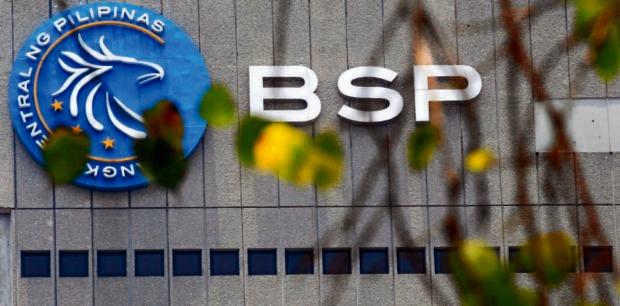BSP survey: PH business, consumer confidence plunge due to economic woes

Bangko Sentral ng Pilipinas (File photo / Philippine Daily Inquirer)
Despite the onset of the holiday season, the confidence of Philippine businesses and local consumers are at their lowest levels in almost eight years — with the bearish sentiment expected to persist into early 2019 — no thanks to rising prices, a weak peso and higher interest rates.
Thus revealed the latest survey of the Bangko Sentral ng Pilipinas (BSP) conducted on Filipino businessmen and consumers for the fourth quarter, with most respondents showing a level of gloom not seen since the first quarter of 2010.
In a statement, the central bank said that business outlook on the economy was less optimistic during the current quarter, with the overall confidence index declining to 27.2 percent, from 30.1 percent in the third quarter of 2018 .
“Despite the expected uptick in demand during the Christmas season, business outlook was less buoyant for the current quarter due to higher inflation driven by rising raw material costs and global oil prices; weakening peso; higher interest rates (i. e. , borrowing costs); decrease in volume of sales and orders; and lack of supply of raw materials,” it said.
Respondents also expected the less bullish business conditions to continue for the first quarter of 2019 as the index remained positive, but lower at 29.4 percent, from 42.6 percent in the previous quarter.
Article continues after this advertisementThe central bank said this also represents the weakest forward looking sentiment in the business sector since the third quarter of 2009.
Article continues after this advertisement“Respondents attributed their weaker outlook for the first quarter of 2019 to the usual slowdown in consumer demand after the holiday season,” the central bank said. “Moreover, sentiment of firms was tempered by expectations of a peso depreciation, which increases the costs of imports, as well as higher inflation and interest rates.”
The confidence index is computed as the percentage of firms that answered in the affirmative less the percentage of firms that answered in the negative with respect to their views on a given indicator.
Meanwhile, the survey conducted on the consumer sector showed an even bleaker outlook.
Consumer outlook continued to weaken for the fourth quarter of 2018, as the overall confidence index declined to -22.5 percent, from -7.1 percent in the previous quarter.
“The current quarter registered the lowest reading back in the fourth quarter of 2014 and posted the largest drop by 15.4 percentage points since the nationwide survey started in the first quarter of 2007,” the central bank said, explaining that the overall consumer confidence index measures the average direction of change in three indicators: overall condition of the economy, household finances and household income.
“The negative index indicates that the pessimists outnumbered the optimists,” the central bank said.
Respondents attributed their bearish outlook during the current quarter to higher prices of commodities; low income; increase in household expenses; the absence of prospects for higher wages; and the upsurge in the number of unemployed persons.
Respondents also noted the occurrence of typhoons and other calamities in the third quarter of 2018 as reasons behind their weaker sentiment for the current quarter.
The less-favorable consumer sentiment was carried over to the next three months where the confidence index reverted to negative territory at -0.8 percent (from 3.8 percent in the previous quarter) while the confidence over the next 12 months, although remaining positive, declined to 10.7 percent from 13 percent a quarter ago. /jpv